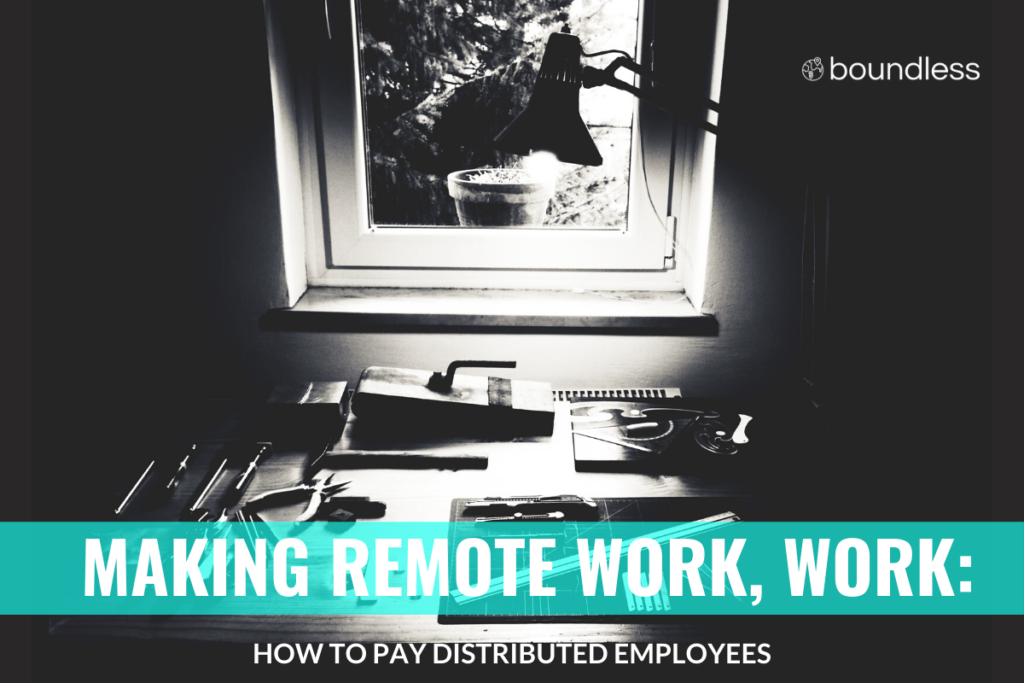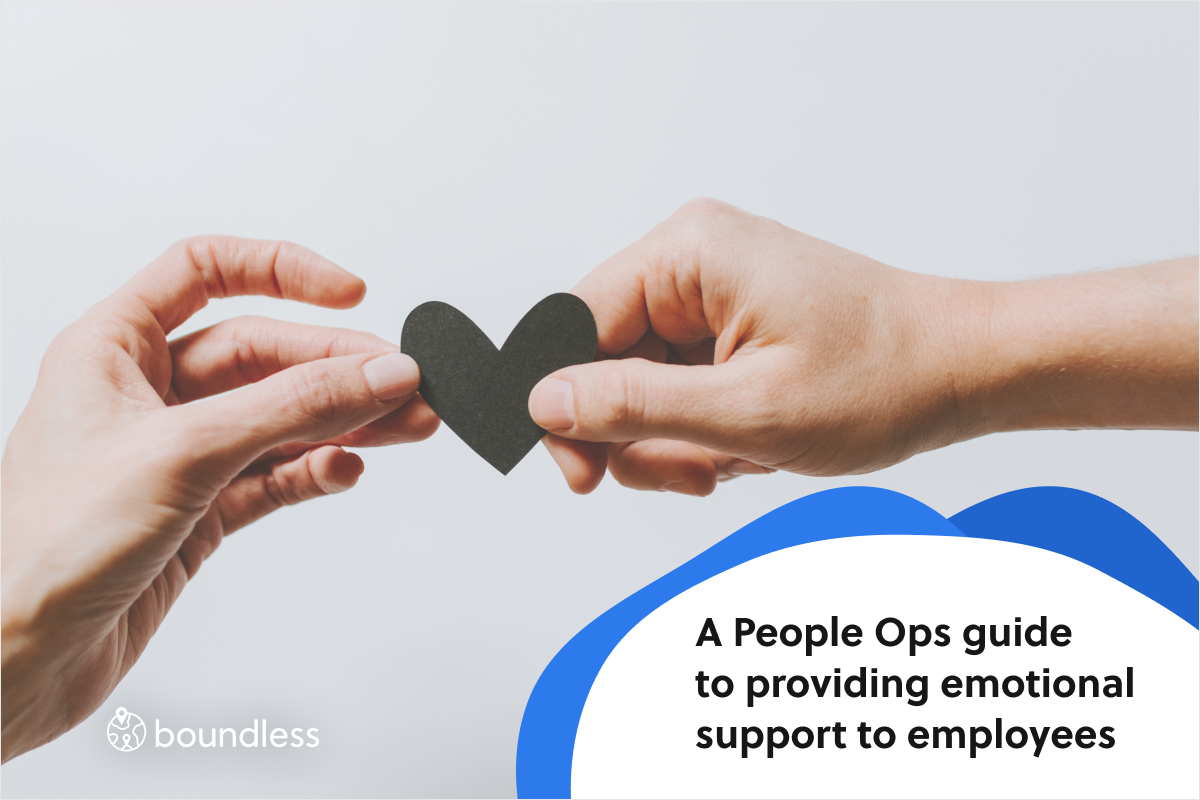Becoming an effective compliant remote company may not be a unicorn kind of narrative, but it's good for business, especially in a time of a pandemic, as it puts people's well-being and safety first.

Every company has their story of how they became remote and distributed. At my last company, we became a distributed organisation organically, rather than proactively.
From the founding of the company, we had seen ourselves as an Irish company, with both feet firmly set on Irish soil. We had a great office at a wonderful location in the heart of Dublin. We reaped the benefits of co-located teams, by having lunch together, and running regular collaborative working sessions where we ran experiments to test new innovations for our product. We knew that eventually, we would have to open an office in the US to serve our customers there but, until then, we were a Dublin-based company, and everyone sat in the same time zone, in the same office.
That is until one of our most gifted developers got tired of the rain, wind, and darkness in Dublin. One day, he handed in his notice, fully expecting that his decision to go back to his home country for more exposure to sunlight would be a deal-breaker for us. It wasn’t. We loved working with him and valued his contribution. If he were going to write code from a few thousand kilometres away, it wouldn’t make a difference to us. Surely we would find a way to make remote work, work (hint: we didn’t refer to him as a remote worker at the time).
It was a one-off thing and we figured how to sort out his case. That was until a few more of our employees followed suit, moving to their much warmer homes or adopted new ones. People had lots of different reasons for moving on – some wanted to be closer to family, others wanted the experience of living in a new city for a couple of years. Within a few months, we had “team remote,” distributed across several European countries.
Yes, usually far more than most founders and C-level executives would assume. Preserving company culture, and making sure everyone feels part of the team in the same fashion as when everyone shared office space, is often top of mind concern for them. Yet the difficulty comes from a lot of other angles as I would find out.
As a COO, my immediate concern was getting my head around the tax system, employment legislation and challenges of payroll in each new geography. Maybe it’s how I was brought up but, despite it being the less glamorous part of running a business, being compliant and ‘doing the right thing’ has always been hugely important to me. I would never want to deal with government agencies investigating for tax fraud or void employment contracts. Plus delayed salaries or feeling less equal than fellow colleagues in another country can be toxic to company culture. As the COO, I felt responsible for figuring all of this out, and for ensuring that we avoided these pitfalls. However, I was ill prepared for just how challenging navigating this was going to be.
Popular belief and practice suggest that companies will either treat employees that live in another country as contract workers or if they have moved from the HQ country, will keep them on the payroll there. Both seem as “easy” solutions when a company doesn’t have an office in that country and doesn’t have an easy way to navigate local rules and regulations. No taxes, international payroll, or complications; just an invoice and a bank transfer at most.
If it only were that easy. Neither of these options offer a sustainable long-term solution to international employment.
Keeping employees on the company's home country payroll longterm is not viable because aside from breaching the law as employers, it could also potentially deprive these employees from availing of healthcare, social welfare, pension and other services available to employed residents. It would be pure negligence on the part of the employer to leave their employees unprotected if something happened to their health, ability to work or employment security.
While contracting is sometimes legal for a short period, that solution is rarely a compliant option for full-time workers in the long run either. Employment laws and tax regulations in most countries around the world are unambiguous on that point: if someone gives you 40 hours of their week, are told what to do and how to do it, and are paid the same amount each month, they cannot be viewed as independent contractors and instead have to be adequately employed. You are their employer and, as such, have to comply with the regulations of their geography. (Employing and paying them properly is a small part of what it takes to be a compliant remote company; read our 10-step guide to learn what the others are.)
It is your duty to make sure that the employee has compliantly been accounted for when it comes to income tax, social security, pension contributions, health insurance, and anything else that the country of their residence requires. Most companies have a good understanding of how to take care of all of this for their HQ countries, and how they manage to comply with the requirements of foreign countries – navigating local intricacies and red tape – is their problem to figure out. If they don’t, fiduciary and reputational charges may swiftly follow.
I knew what was at stake, but I didn’t know how exactly to manage the challenges of international employment. Believe me I committed to doing things the right way but, as soon as I lifted the lid on all of this, it got pretty tricky, pretty quickly.
Recently, governments have become even more stringent with employers “employing” full time independent contractors. This year, we’ve heard first-hand stories spanning from Canada, through to Serbia, and all the way to Thailand, of governments sending official letters to companies employing contractors, notifying them that they have until the end of the tax year to reclassify their contractors as full time employees. For employers that fail to meet these deadlines, a multitude of potential repercussions await them: from paying tax bills and holiday pay for years of unlawful employment in the UK, to jail time in France.
But back to my experience a few years ago… My first stumbling block was figuring out what our employees’ current net salary based on the Irish tax system would translate into at their new location. I had to make the gross to net (looking at capping the company cost at its current level), and net to gross (looking at keeping the employee at the same level of take-home pay), calculations for each employee. In Ireland and the UK, there are a variety of high-quality online tax calculators available. I assumed the same would exist in other EU countries.
It didn’t at the time.
The next best — and expensive — thing was to find an international payroll processing bureau that would be able to help me. I remember sending a plethora of emails with the simple question of gross to net calculations for a specific salary. My emails ended up in what I could only equate to a black hole, remaining unanswered for weeks on end. I would send reminders again and again.
In retrospect, there were two reasons for the massive delay. One was that countries like France have a far more complex tax structure, which can be profoundly different depending on where in France the employee is based, for example. The second one was that these service providers probably didn’t have direct access to this information, and were sourcing this from third parties.
Weeks later, I would eventually get the numbers. It was only at this point that we were really in a position to understand if employing this person from their chosen country was a realistic option. Given the huge variances between different countries’ tax regimes – even within Europe – having an employee move to another country can have a significant impact on the employee’s take-home-pay, and/or the cost to the company. After receiving initial numbers, I would spend time with the employee, their manager and our finance team, to arrive at a workable solution, in terms of their new salary arrangements.
As each of the countries that our team members moved to were within the EU, we decided to avoid registering entities unless absolutely necessary, and to go with the seemingly easier option of simply registering as an employer for tax purposes in each country. But even having “to fill out a tax number form” turned out to be more painful than I could have imagined. In each country, the process was different, and even with the help of local partners, it took up to ten months in some cases. Some of the forms were very extensive and asked for a level of detail about our business that was very difficult to answer as a small company.
Although we used intermediaries to support us with this process, they were often far from forthcoming with information, and I was left having to do a lot of painful research myself. Despite all the pain, we did eventually manage to make it work, and we successfully retained all our staff that moved abroad. But the experience was so exhausting and frustrating that I never want to wish it on anyone.
In retrospect, I now know that what I needed was an Employer of Record service - a company that would be the legal employer locally of our employees in the country. We would have still assigned tasks and overseen our employee’s work, but the legal compliance and payroll would have been taken up by Professional Employer Organisation that acts as the Employer of Record. The lack of quality information available online about all of this meant that none of the search queries I used ever produced Employer of Record as a solution to my problem, so I ended up in a position where I had to overcome a lot of the hurdles that international payroll and compliance poses myself.
The choice shouldn’t be the lesser evil between non-compliant and painful service providers.
Remote has to work better than that if it is to fulfil its true potential. As the world becomes ever more open, and remote employment a viable solution, many companies are becoming distributed proactively, rather than organically. However, solutions like an Employer of Record are still unreachably expensive for many SMBs.
I co-founded Boundless, with the aim to change this. We make it a lot more affordable to employ compliantly through an Employer of Record, while building a layer of SaaS-delivered tech on top of this corporate and legal infrastructure to ensure that running multi-country payroll is as smooth and painless as running payroll locally.
Leave your email below to learn more about how we could help you employ anyone, anywhere.

Becoming an effective compliant remote company may not be a unicorn kind of narrative, but it's good for business, especially in a time of a pandemic, as it puts people's well-being and safety first.

Payroll is the process and system by which a company pays its employees, and involves keeping employee financial records, calculating their paycheck taking wages, taxes, tax credits, allowances, and benefits-in-kind into consideration. Here is what you need to understand about international payroll.

To employees, employment may seem relatively straightforward at the front end - sign a contract, get paid once a month, receive a payslip, take some time off when needed. Managing the back end is where the complexity begins.

If leaders do not make their companies fit for a world where a remote and distributed way of work is far more prevalent, they risk becoming less competitive employers. A change in how we operate is needed, which goes beyond opening up the recruitment pool and advertising remote-friendly jobs.

An extensive guide on how benefits in kind tax works around the world, when employees are exempted from it, how companies can offset it, and how to file benefit in kind taxes accurately for your employees.

Nowadays, nothing is normal, which means that any work-life troubles are only a small puzzle of a very complex and challenging situation. In this unchartered territory, which none of us know how to navigate, we all need to support and be there for each other.